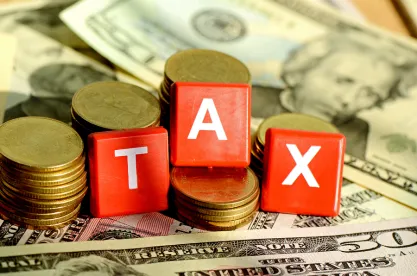In the 2022 Louisiana Regular Legislative Session, the Louisiana Legislature enacted Act 410, modifying the deadlines for filing partnership, fiduciary, and corporate income tax returns. Specifically the Act obsoleted the process by which most taxpayers obtained extensions of time to file. These changes were then implemented by the Louisiana Department of Revenue (the Department) in final regulations promulgated in April 2023 and clarified in Revenue Information Bulletin 23-011 issued on May 5, 2023.
Prior to the enactment of Act 410, the Department had discretion to approve corporate income tax return filing extensions up to the later of (a) the extended due date of the taxpayer’s federal income tax return for the same period or (b) seven months from the original filing deadline. Though regularly approved, taxpayers had to request the extensions, and the Department retained discretion over their approval.
New Automatic Extension for Corporate Income Taxpayers
Starting with the 2022 tax year, corporate taxpayers that timely request a federal extension to file their income tax return will receive an automatic extension to file their Louisiana Corporation Income and Franchise Tax (CIFT) return for the same period to the later of (a) the date of the federal extension or (b) six months from the original filing deadline, all pursuant to La. R.S. 47:287.614 as amended by Act 410. For 2022 calendar year filers, the original filing deadline is May 15, 2023, yielding an extended due date of November 15, 2023 under both methods.
Eligible taxpayers do not need to file a paper or electronic extension request form; however, they must check the box on their ultimately-filed CIFT return indicating they timely requested the federal extension.[1]
Note that the automatic extension to file is not an extension of time to pay Louisiana taxes; La. R.I.B. 23-011 details the methods by which corporate taxpayers can make an extension payment. Further, if a taxpayer qualifies for the automatic extended filing period, but fails to file their CIFT return by the extended date, late filing penalties will be assessed starting from the original due date.
CIFT taxpayers will still be permitted to request a discretionary extension from the Department to file their CIFT returns on an extended basis, but the maximum period of time for such a discretionary extension has been shortened from seven to six months from the original filing deadline. Taxpayers in this situation, e.g. those that did not request a federal extension but desire a Louisiana extension, should follow the process set out in LAC 61:III.2503(A)(3) to request a discretionary extension.
A Note for Entities Which Solely File Corporation Franchise Tax Returns
Taxpayers which file a Louisiana Corporation Franchise Tax return, but not a Louisiana Corporation Income Tax return are ineligible for the automatic extension. [2] Instead, these taxpayers must request a discretionary extension as set forth above. Our understanding is that the Department will be sympathetic to these requests given the taxpayers’ statutory ineligibility for an automatic extension. Again, any such extension would be limited to the later of (a) the date of the federal extension or (b) six months from the original filing deadline.
New Automatic Extension for Partnership and Fiduciary Returns
Similar to corporate taxpayers, starting with taxable periods beginning on or after January 1, 2022, Act 410 created an automatic six-month extension for filing Louisiana partnership and fiduciary income tax returns; however, unlike with corporate taxpayers – partnerships and fiduciary filers do not have to request a federal extension in order to be eligible for the Louisiana extension.[3] Rather, they just need to remit the amount of taxes owed by the original due date and file their Louisiana income tax returns by the extended due date. Failure to do either will result in penalties (and in the case of failure to remit taxes due, interest).
[1] LAC 61:III.2503(B).
[2] LAC 61:III.2503(B)(1).
[3] La. R.S. 47:103(D)(2); LAC 61:III.2505(B) and LAC 61:III.2507(B).




 />i
/>i
